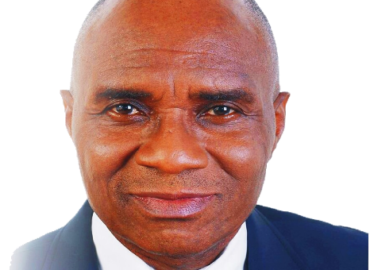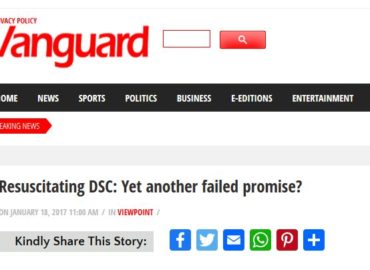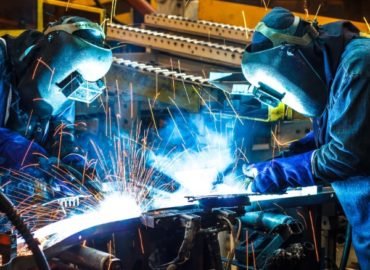CHAPTER 4: SURVIVING WITHOUT A HINTERLAND
In this chapter LKY narrated how Singapore under his leadership had to survive without Malaysia who was unwilling to have a common market with Singapore even Singapore was part of it as Malay. Indonesia and had been unfriendly by its confrontation with Singapore escalated unemployment in Singapore. Therefore with no sign of willingness of bilateral trade with Malaysia, Singapore was perceived to be “walking on a razor’s edge” by her allies. LKY got quite a few foreign advisers on the way forward with their survival and such advisers included an economic planner seconded by the Indian government and also a Dutch economic adviser who earlier worked for the United Nation Development Program ( UNDP). While the Indian planner had suggested a common market with Malaysia which LKY knew was impossible jettisoned the report and in his words never wasted his time studying it. The Dutch economic adviser had advised that the only way to go for Singapore was to industrialize. Coupled with this was the closure of the British military base and the withdrawal of the her forces from Singapore which led to loss of thousands of direct employment and support services. This loss accounted for 20% of the GDP of Singapore.
LKY took the following steps to re-build the economy of Singapore.
- LKY sent trade mission from chamber of commerce and the manufacturer’s association to Africa particularly to East and West Africa on off-chance of picking up some business but only little trade followed.
- LKY in trying all ideas to ease rising unemployment, promoted tourism which had the potential of providing huge employment as it is labour intensive requiring low capital investment. This led to the formation of Singapore Tourist Promotion Board and appointed a film magnate as its Chairman. Jobs were created and went a long way to reduce unemployment.
- LKY now concentrated in getting factories started in Singapore.
- A deliberate plan was instituted to protect local assembly factories for cars , refrigerators, air conditioners , radios and to also encourage them to transform to manufacturing of those goods.
- LKY also encouraged local business people who set up small factories to begin to manufacture vegetable oil, cosmetics, mosquito coils, hair cream, joss paper and even moth balls.
- LKY encouraged Hong Kong and Taiwanese investors to build factories for toys, textiles and garments.
- It established the Jurong industrial estate west of Singapore with infrastructure.
- Singapore through its Economic Development Board went into joint ventures with local businessmen. Two of such ventures failed, paper recycling and ceramics.
- It went into joint venture in ship building and ship repair and had to import steel plates and engine from Japan.
- It also went into joint venture in manufacturing fishhooks with a Norwegian manufacturer because it is about intensive and could provide several hundred jobs.
- With the closure of the British base, Singapore engaged the British to all the base be converted the base into a civilian use. Bases Economic Conversion Department was formed for this purpose. The naval dockyard was converted for ship repairs, military airfield was converted initially to airfield for small cargo planes and commercial aircraft while the Royal Air Force air base with some land reclamation was developed into Changi International Airport. The Pasir Panjang military complex was transformed into the National University of Singapore campus at Kent Ridge with 26,000 students.
LESSONS TO BE LEARNT FROM THIS CHAPTER 4
- LKY admitted that Singapore under his leadership had its fare share of failures primarily because of lack of expertise.
- LKY focused on factories that could provides several hundred jobs such as ship repairs, manufacturing of fishhooks
- LKY based on his avowed conviction that Singapore and its people must not be an aid depended people worked tireless to surmount all teething problems facing them at the inception of Singapore.
- Positive efforts were made to attract several industries from overseas such as United States of America, UK, countries such
- Even when the British closed down its bases, LKY opined that ” There was a thriving Singapore before the bases were built and manned. If we set about it intelligently and in good heart, there will be a bigger and economically more self reliant Singapore after the bases have been run down” He further wanted the workers that “The World does not owe us a living. We cannot live by the begging bowl”.
- LKY demonstrated with tact, planning and good leadership in his words said I settled policies to counter the loss of British spending from the “run-down” of the British bases.
- LKY continued to learn new ideas. He took short sabbatical at Harvard to interact with professors of economy and to learn about the American society where he imbibed valuable lessons on the ever-changing nature of technology, industry, market etc.
- LKY learnt that most successful American CEOs had no time visiting Singapore but they wanted to see and assess the man in charge before setting up a factory there.
- LKY learnt from the Israeli situation whereby it leapt over their hostile neighbours to trade with America, Europe and Japan and so decided to link up with the developed world and attract their manufacturers to produce in Singapore and export their products to the developed countries.
- LKY decided that it would build a First Class oasis in a Third World region so that Singapore would become a base camp for entrepreneurs , engineers, managers and other professionals who had business to do in the region. Hence it retrained and reeducate and equipped its citizens to provide first class service.
- LKY said that they succeeded because they were determined to be a honest and competent government.
- Singapore welcomed everyone to establish factories but when it found a big investor with potential for growth, went out of their way to help get it started. That was how GE, Texas Instruments, Hewlett Packard.
- Singapore took the lead in such heavy industries such as steel mills ( National Iron and Steel Mill , shipping line Neptune Orient Lines and an air line Singapore Air Line, a mint, small ammunition factory and later Singapore Technologies.
- There was a strict and clear instructions that the enterprises had to be profitable or be shut down. This resulted also in State monopolies like Public Utilities Board, Port of Singapore Authority and Singapore Telecom were made profitable and competitive.
- LKY imbibed confidence in his people and also gained confidence of the investors.
Comments and contributions are welcomed. Chapter 5- Creating a Financial Centre.




